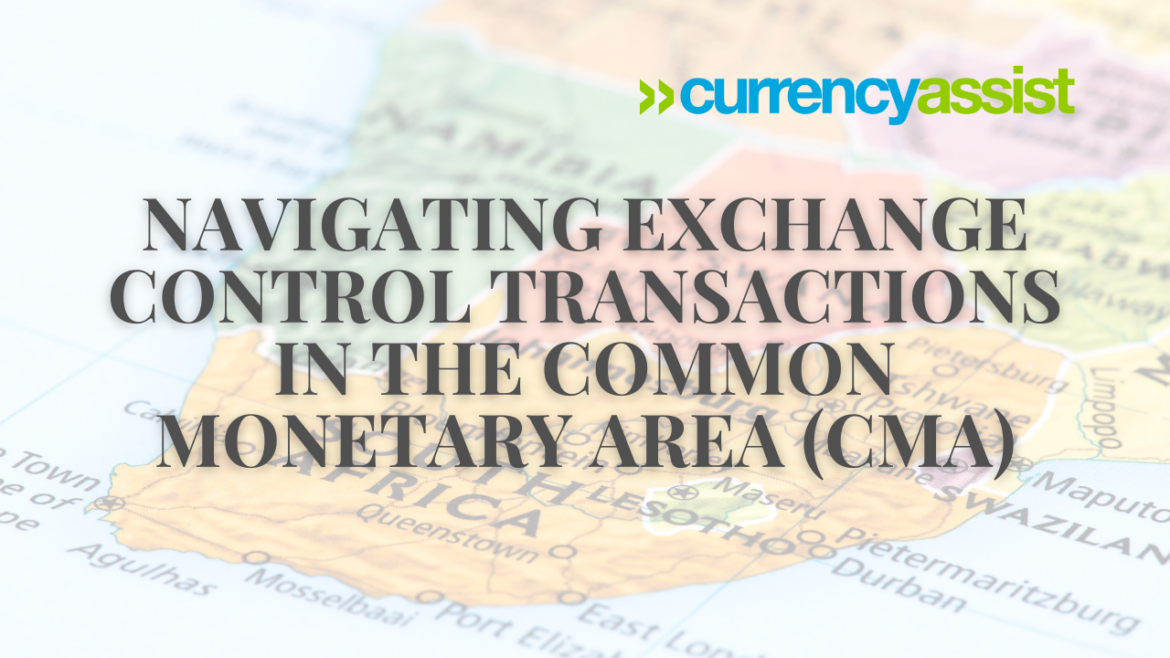Welcome to our guide on understanding exchange control transactions with residents of the Common Monetary Area (CMA). Whether you’re a frequent traveller, a student studying abroad, or someone looking to engage in cross-border transactions within the CMA, this article aims to provide you with some much needed clarity and guidance.
- What is the Common Monetary Area (CMA)?
The Common Monetary Area comprises several countries, including South Africa, Lesotho, Namibia, and eSwatini. Each of these countries operates with its own currency: the South African Rand, Lesotho Maloti, Namibian Dollar, and eSwatini Emalangeni, respectively.
- Understanding Exchange Control
Within the CMA, there are generally no foreign exchange restrictions between banks of member countries for cross-border transactions amongst themselves. This is governed by the Multilateral Monetary Agreement. However, it’s essential to note that exchange control regulations may vary slightly between each country within the CMA.
- Cross-Border Transactions
For individuals from CMA countries, it’s important to know that South African Authorised Dealers cannot engage in foreign exchange transactions (transactions in currencies other than CMA country currencies) with residents of other CMA countries. If such transactions are requested, individuals will be directed back to their respective bankers within their own CMA country.
- Travel
However, there are exceptions for certain categories of individuals. Diplomats, accredited foreign diplomatic staff, and students with valid student cards from other CMA member countries can purchase foreign currency while in South Africa. Additionally, CMA residents in South Africa can obtain foreign currency for unforeseen incidental costs while in transit, provided they can show a passenger ticket confirming a destination outside the CMA.
For those traveling overland to and from Namibia through Botswana, there’s a special provision. These travellers qualify for an allocation of Botswana Pula equivalent to an amount not exceeding R25,000 per calendar year. This allocation is separate from the single discretionary allowance limit of R1 million per calendar year for South African residents.
- Export Regulations
Lastly, if you’re considering exporting motor vehicles outside the South African Customs Union (which includes Botswana, Lesotho, Namibia, and eSwatini), there are regulations to consider. While there are exceptions for diplomatic and foreign representatives, as well as new vehicles exported by local manufacturers or their appointed agents, other motor vehicles may not be exported for sale outside the Customs Union without an export permit issued in terms of the International Trade Administration Act, 2002.
In conclusion, understanding exchange control regulations is crucial for individuals engaging in transactions within the Common Monetary Area. By familiarising yourself with these regulations, you can navigate cross-border transactions smoothly and ensure compliance with applicable laws. If you have any further questions, don’t hesitate to reach out to Currency Assist for assistance with all your cross border needs. Happy transacting!

